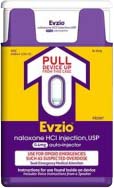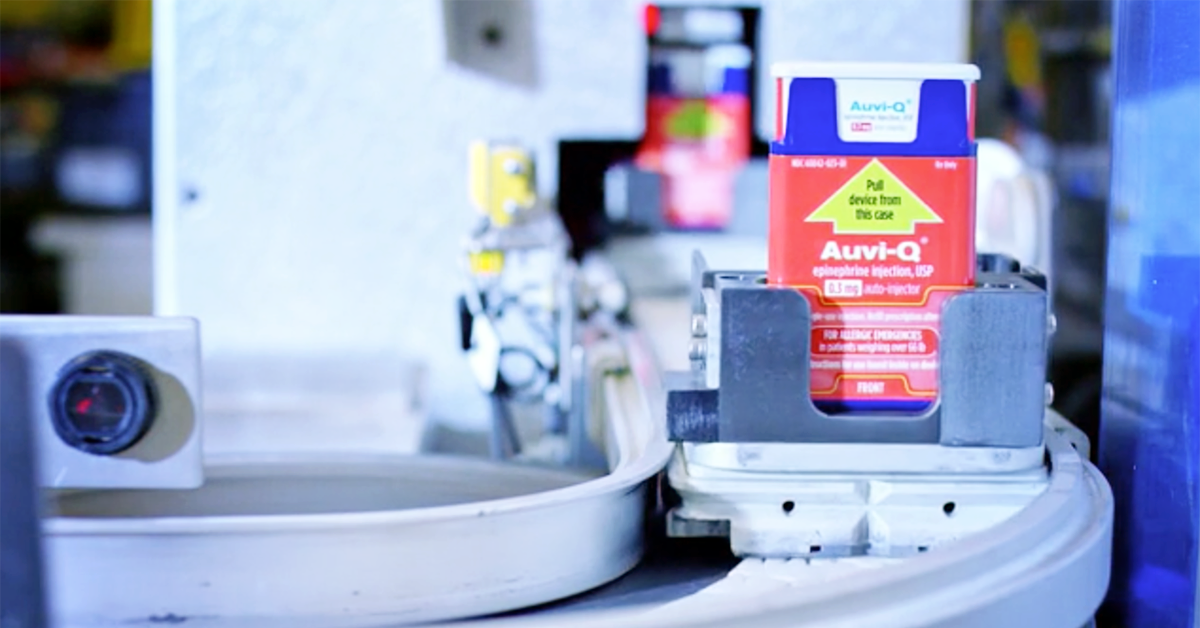Flashback to the Fall of 2015: Sanofi, the marketer of Auvi-Q – the world’s first voice-prompted epinephrine auto-injector – issues a bombshell announcement, recalling all such devices after receiving 26 reports of suspected malfunctions that result in the delivery of too little epinephrine or none at all.
By botching the initial communications, Sanofi plunges the food allergy community into chaos as patients and parents alike scramble to replace their Auvi-Qs, not knowing whether the devices they hold will function if needed in an emergency. The ensuing melee results in shortages and heated exchanges with pharmacists, prescribers, and insurers.
In order to receive reimbursement, consumers are first required to send their Auvi-Qs back to Sanofi. Many in the community are not able to afford replacements and are forced to risk life without auto-injectors until they are reimbursed months later.
A representative of the firm assures us they will perform a post mortem analysis of the devices to determine the cause and pervasiveness of the problem. That information will never be provided as the firm later announces their exit from the market.
By washing their hands of the entire issue, Sanofi denies a popular alternative to the very community they purport to serve and leave consumers without much needed choice and the market with little competition.
Fade back to today: The fiasco ultimately results in the return of the device’s manufacturing and marketing rights back to the original developers, since renamed kaleó. (Ancient Greek in origin, the word means “to be called; a calling.”)

In the time since signing the original deal with Sanofi, kaleó has gone on to manufacture and commercialize an auto-injector similar to Auvi-Q named Evzio which delivers naloxone for use in opioid overdoses. The device is carried by emergency responders throughout the country.
Kaleó recently announced they will be returning Auvi-Q to market in the first half of 2017, leaving many in the community overjoyed and many others pensive, fearing a repeat of the prior recall.
We reached out to kaleó to learn more about the pending return of the device to the market and were granted an interview with Eric Edwards, VP of Product Strategy for kaleó. Together with his brother Evan Edwards, kaleó’s VP of Product Development, Eric conceived of and developed the Auvi-Q prior to the handover of the device over to Sanofi for commercialization.
Here follows our Q&A with Eric Edwards, MD, PhD.
Dave Bloom, SnackSafely.com: Eric, thanks so much for your time. As you know, we were vocal critics of Sanofi’s handling of the recall. At the time, my daughter carried both an Auvi-Q and an EpiPen, and – as was true of many others in the community – our family was shaken to the core after learning the details behind the recall.
My questions focus largely on providing kaleó the opportunity to reassure our readers in advance of the pending reintroduction of Auvi-Q.

Eric Edwards, kaleó: Thanks for the opportunity, Dave. Let me say, to begin, that as the original inventors of Auvi-Q, my brother Evan and I are really excited – even proud – to be bringing it back to market and providing patients who have life threatening allergies with another option when they are choosing an epinephrine auto-injector. My brother and I have life-threatening allergies ourselves, and we are also parents of children with life-threatening allergies. We know how important it is to have an auto-injector designed to be easy-to-use, and convenient-to-carry.
Dave: There are many misconceptions surrounding the reasons why the Auvi-Q was recalled last year. Please describe the problem, how it was discovered, and the thinking behind the need for a global recall.
Eric: Right. To level set, let me clarify that kaléo was not involved in or responsible for the recall. We didn’t have rights to manufacture or market the product at that time in the US. What we do know is that Sanofi voluntarily recalled Auvi-Q last October because a small number of devices were found to potentially have inaccurate dosage delivery, which may have included failure to deliver the drug. Sanofi identified the issue during a routine manufacturing quality review and decided to voluntarily recall all devices before it had any real-world consequences.
Dave: I’m guessing tens of thousands of units (if not more) were returned as a result of the recall. Please describe the post mortem analysis of the returned devices and what was learned. Were the original reasons for the recall confirmed, or did this turn out to be a costly false alarm?
Eric: As I say, Dave, kaléo was not involved in the recall. Sanofi has been solely responsible for all recall aspects. We reacquired Auvi-Q after the recall had occurred.
Dave: There was a presumption among many that Sanofi exited the auto-injector market because of Auvi-Q design flaws that were too severe to correct. Obviously, this is not the case as Kaleo is stepping up to reintroduce the device. Can you shed light on why Sanofi passed the Auvi-Q back to Kaleo?
Eric: We cannot speak on behalf of Sanofi, but I can tell you as the inventors of Auvi-Q, we are thrilled to have this opportunity to return it to market. We can confirm that the voluntary recall was not associated with any Auvi-Q design-related issues.
Dave: While many in the food allergy community are cheering at the reintroduction of the Auvi-Q, others are gun-shy, concerned about the reliability of the device. Please describe the changes Kaleo has made to the design, manufacture, and QA of the device that would help allay the concerns of the latter.
Eric: Well, as I said, the recall was not associated with any design-related issues for Auvi-Q. Additionally, the product is FDA approved today as the recall was voluntary. After re-acquiring all rights to Auvi-Q in February 2016, we conducted a comprehensive and thorough investigation of all parts of the supply chain, including a station-by-station evaluation of the manufacturing line, eliminating the potential issue. Kaléo created an intelligent, high-tech, 100% automated robotic production line with over 100 automated quality checks on each Auvi-Q device, to help ensure a streamlined and consistent production process. Specially calibrated sensors and vision inspection systems are used to ensure each component is assembled into Auvi-Q with precision. Every component built into each Auvi-Q has an identifier and is tracked throughout the manufacturing process. We are committed to the highest quality manufacturing processes and systems and want to make sure that each of our products works every single time.
Dave: It seems a difficult task to monitor the continuing reliability of millions of devices that are seldom used. How will kaléo monitor the Auvi-Q moving forward to ensure that potentially defective devices never leave the factory?
Eric: Kaléo invested in additional inspection systems on our automation lines to address the cause of the recall. Our systems were built based on our proven manufacturing expertise and rigorous standards to ensure that we are producing devices that are consistently reliable with accurate dosing delivery. We have also invested in quality system improvements in order to ensure continuous improvement and monitoring of our production processes. As a part of each lot that is manufactured and our quality system, we pull Auvi-Q devices from the line often during the process to test Auvi-Q performance attributes. We also have a robust pharmacovigilance system that is constantly monitoring for potential adverse events in accordance with FDA standards.
Dave: Does kaléo anticipate reticence on the part of doctors to prescribe or insurers to cover the device based on the prior recall? What steps are being taken to ensure the Auvi-Q is made available to those that prefer it?
Eric: We know from direct conversations with physicians and patients that there is a shared enthusiasm for Auvi-Q’s return, and that’s exciting to us. We feel strongly that a health care provider should be able to confidently prescribe an epinephrine auto-injector that best suits a patient’s needs. With that said, we are determined to help ensure that when a physician prescribes Auvi-Q, a patient can obtain the product without insurance barriers or being subjected to a high out-of-pocket costs.
We have been having frequent conversations with patients, doctors and advocacy groups to understand concerns about pricing and access, and are working to address these concerns in a way that benefits patients. Further, we are working to engage with various stakeholders, including wholesalers, insurance companies, and pharmacy benefit managers, to implement a comprehensive access program for Auvi-Q. Our goal is that any patient who needs an epinephrine auto-injector, regardless of insurance coverage, should have affordable access to Auvi-Q. At the end of the day, our belief is that doctors and patients should have options when it comes to epinephrine auto-injectors and should not be told that they can only access a single product. Our goal is to build an access program that assures access to Auvi-Q as an innovative option. Kaléo believes in having a level, competitive playing field and will never enter into a contract with a payer or insurance company that excludes access to epinephrine auto-injector options for patients.
Dave: When do you anticipate the device being available to the public?
Eric: Kaléo will reintroduce Auvi-Q to the U.S. market in the first half of 2017. We encourage your readers to go to www.auvi-q.com and to sign up to receive updates on Auvi-Q, including more information on when Auvi-Q will be available.
Dave: What else would you like to say to the food allergy community in general, and readers of SnackSafely.com specifically, that we haven’t covered?
Eric: We are thrilled to have Auvi-Q back with kaléo. It is a privilege and a responsibility to be able to make Auvi-Q available again for the life-threatening allergy community and we are committed to ensuring that it will be an affordable, innovative alternative to those suffering from life-threatening allergies.
We at kaléo are in the business of saving lives, and we take that responsibility very seriously. We know from firsthand experience as patients and parents that it is imperative to have a safe and effective auto-injector to rely on in case of an allergic emergency. We are committed to the life-threatening allergy community and to ongoing innovation.
After our conversation with Eric, we are encouraged the device has been returned to its original designers who have since gone on to develop and hone their own manufacturing processes with the commercialization of Evzio.
We do know that, unlike Sanofi, kaléo is not “too big to fail”. As a much smaller company, they are putting their reputation and business viability on the line by returning Auvi-Q to market.
We look forward to the device’s reintroduction to consumers starved for alternatives and a market starved for competition. We wish kaléo much success.






This article seemed nothing more than glossy corporate rhetoric that doesn’t address the real questions those of us with life threatening allergies have regarding the product. Why did it fail? What are they doing to fix the problem? Certainly Eric cannot say “it’s not a design flaw” without knowing why it failed. And they would not have invested the money to buy it back if they didn’t know what the problem was and whether or not it was fixable. At some point they are going to have to tell the whole truth regarding why it failed if they want consumers to trust them. All the quality controls are great, but the original manufacturers of Auvi-Q were required to have those, as well. So, it wasn’t a design flaw and quality controls were in place with previous manufacturing, as well – Why is it, again, that it failed and we should trust you have “fixed” the problem? Oh, that’s right – we don’t. All our family carried previously was Auvi-Q, but we will not even entertain the idea of caring them in the future until we get the whole truth and feel comfortable. We were just at the Allergist this am and she echoed the same thing. “Unless the rep coming after the first of the year to our office can tell us why the original ones failed and what they are doing to fix it, I will not be recommending them to patients”. Maybe reconsider the your message, this one didn’t work.
Yes – what you said. Was looking for real information, not glossy spin – which is all this was. Basically – it wasn’t our fault, wer’e moving on mentality – how do you trust that?